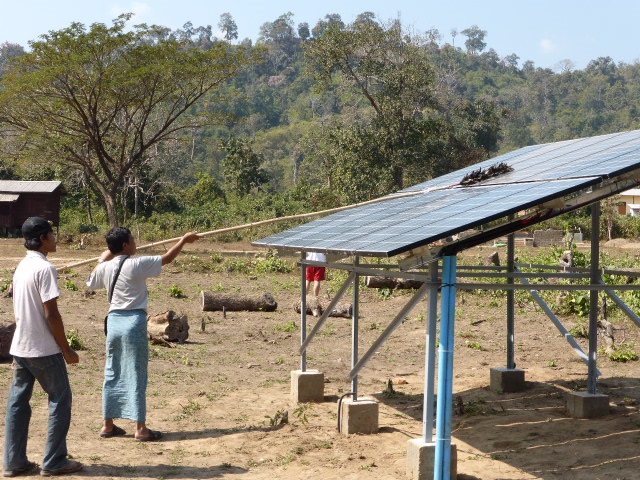Solar Power to Villages in Karen State, Myanmar
2014.6.27 Fri 10:30
In Myanmar many of the minority ethnical areas were left without infrastructures due to the battles against the central government.
After the cease fire better infrastructures are indispensable to encourage refugees and Internally Displaced Persons(IDP) to return to their home lands. BHN started supplying solar electricity to remote villages to improve their lives.
What is the issue, problem, or challenge?
In Myanmar, there are as many as 135 ethnic minority groups and over 60 years after independence of the country, many of these ethnic minority groups were in battle against the central government, demanding ethnical autonomy.
Recently, most of these ethnic groups agreed ceasefire with the central government and the refugees and Internally Displaced Persons(IDP) are gradually returning to their home lands. However, most of the disputed areas were deserted and left without infrastructure investments
How will this project solve this problem?
Since last summer, to encourage people to return, BHN has been trying to build solar power systems in Shan Ywar Thit sub-township in Karen(=Kayin) State. With LED lamps in the high school students can now study at night to prepare for exams for higher education and watch educational TV and video programs.
In the village community center, villagers are frequently gathering and watching TV programs and chat. Also at school, teachers can now communicate with their families via radio telephone set.
Potential Long Term Impact
As the next project BHN installed the same solar system in the high school of Paung village located far south. Parents of high school students now do not need to buy candles for their children to study at night.
Also, in Shan Ywar Thit, BHN plans to supply solar power to the area hospital and equip villages with radio phones, which covers over 10,000 inhabitants in the area. With such improved basic infrastructures BHN wishes to encourage more refugees and IDPs to return to their old home lands.
Hirofumi AIZAWA

